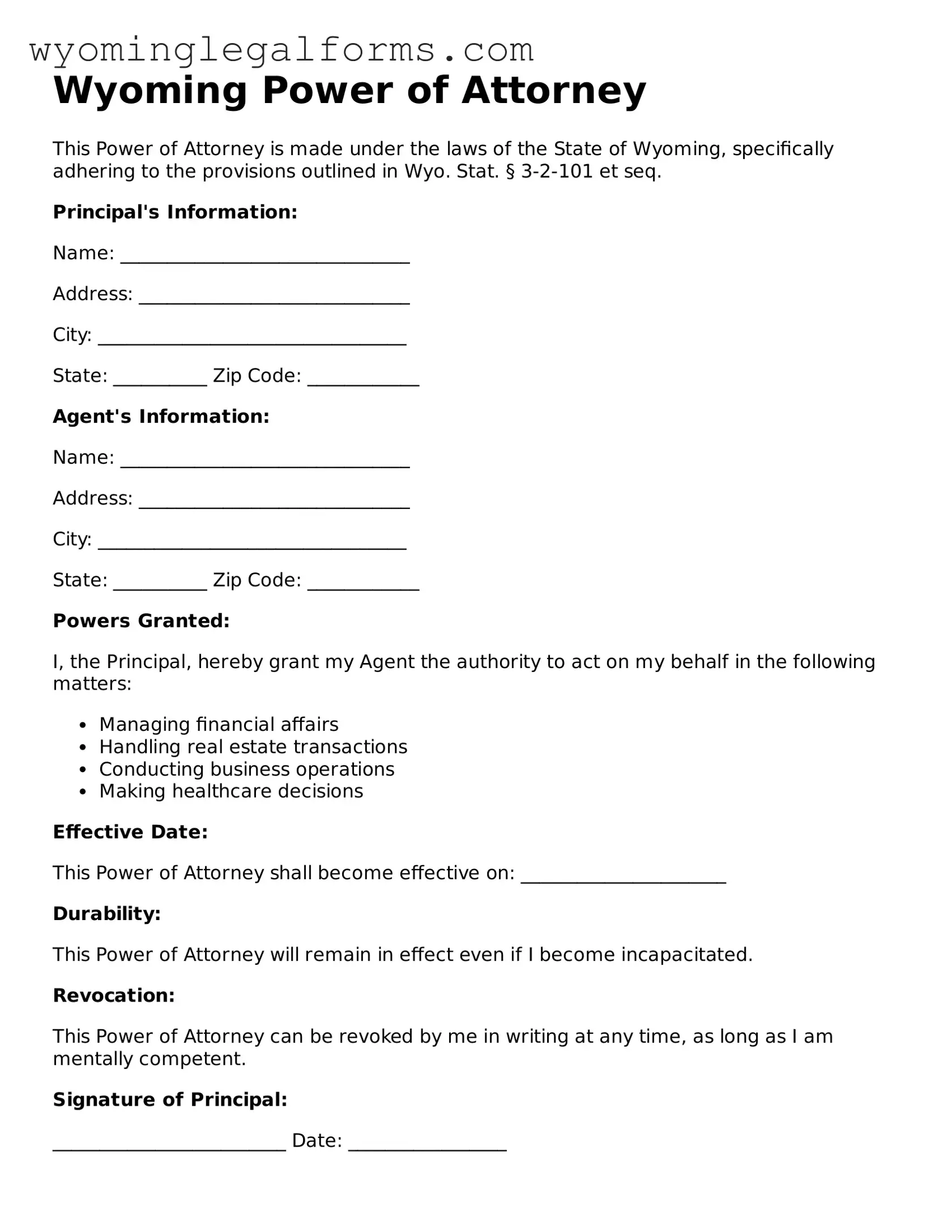Printable Power of Attorney Form for Wyoming
A Power of Attorney form in Wyoming is a legal document that allows an individual, known as the principal, to designate another person, referred to as the agent, to make decisions on their behalf. This form can be used for a variety of purposes, including financial matters and healthcare decisions. Understanding the nuances of this document is essential for ensuring that one's wishes are honored when they are unable to act for themselves.
Access Document Here

Printable Power of Attorney Form for Wyoming
Access Document Here
Time-sensitive? Finish the form quickly
Finalize your Power of Attorney online quickly and download it.
Access Document Here
or
➤ PDF File
